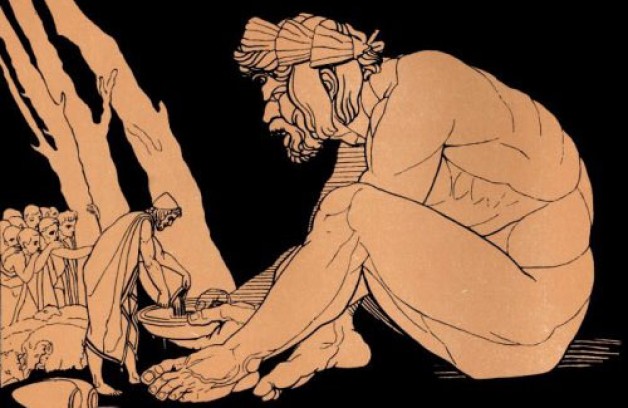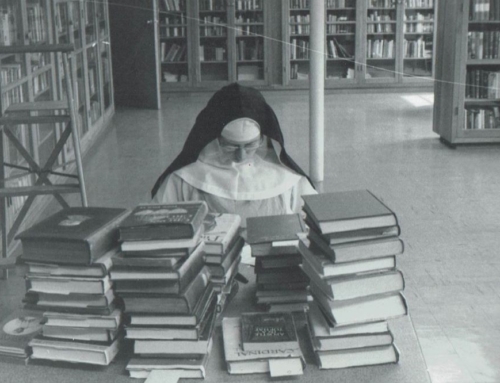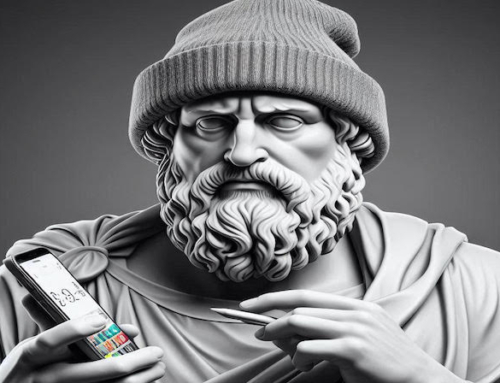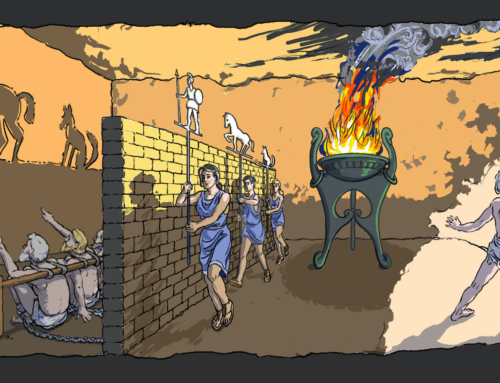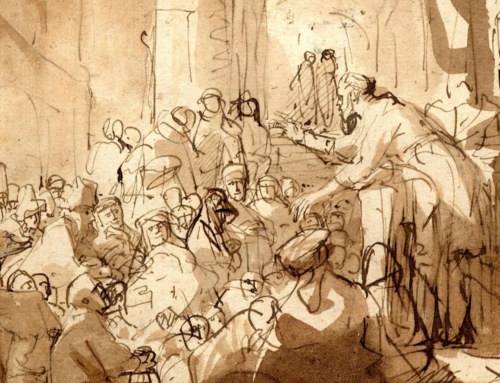“The good man is the measure of things to be done.” This principle—that the life and character of a truly virtuous man provide us with the best standard for deciding how to act—is at the heart of Aristotle’s approach to the moral life. It’s also at the heart of common sense, because we all know that morals isn’t math. We all know that ethics concerns what is irreducibly human and, therefore, inherently unquantifiable. Or most of us do.
I once had a professor who once had a professor who was a full-blown utilitarian. When making a major decision, the man would sit down at his desk and assign numerical values for the goodness and badness of every aspect of every possible option that he could foresee. He would then sum them up, see which decision produced the most “goodness points,” and have his answer. Here was a conscientious man, to be sure, but it’s hard to liken his crabbed number crunching to the stuff of true moral greatness—to the heroism of self-sacrifice, the spontaneous joy of innocence, or the profound peace of the just man.
It’s good men, not goodness points, that reveal to us what should be done. This is because happiness isn’t primarily about doing good, but rather about being good. If we have good character, we’ll be inclined to do the right thing in tough situations. But here we hit a snag: character takes a long time and lots of experience to develop. Thus, Aristotle sagely remarks that the young and the inexperienced are not equipped for the study of ethics.
In today’s world, however, young people have to make serious ethical decisions on a regular basis. Consider, for example, the unprecedented sexual pressures brought to bear upon teenagers, or even pre-teens. Simply throwing them to the wolves so that they’ll gain the experience necessary for learning ethics at some point in the future seems like a dubious and dangerous solution. What, then, should be done?
Enter, stage left, the Casuist. “I have a solution,” he says. “Casuistry is a system of doing ethics by analyzing difficult moral cases. By considering case after case (such as what to do when your life-boat is carrying one too many people, or what to do when the only food on a desert island is your buddy Jim), we can train young people in the habit of thinking ethically. Casuistry can stand in for the moral experience they lack.”
What should we think of this? Well, we shouldn’t dismiss it out of hand. The idea of looking for a kind of stand-in or surrogate experience is a good one. But casuistry may not be the best option in this regard. In particular, it has the serious drawback of zeroing in on a single action without considering that action in the context of the broader life of the moral agent. But if happiness is about being good, and being good is about having good character as the principle of all our actions, we can’t afford to ignore the bigger picture; we can’t afford just to look at atomic, isolated acts.
So can we find what we’re looking for elsewhere? We can: in the Aristotelian doctrine of catharsis. Aristotle develops this concept in his Poetics when he analyzes the tragic plays of the Greek dramatists. Watching such plays provides the audience with a kind of substitute for real experience and, in so doing, purges their passions and purifies their emotions. The viewer is emotively connected to the characters portrayed and actually does experience, even if only indirectly and mediately, what the characters experience. Where casuistry supplies a merely intellectual analysis of an isolated action, catharsis offers an experiential engagement with a well-developed (and developing) character over the course of an extended period of time—over the course of the entire story or drama.
So, how can we equip high schoolers—so many of whom are not Catholic, or even baptized, and so do not have recourse to the graces of the sacramental life—to make moral decisions that they are not yet ready to make? How can we provide a stand-in for the experience they lack? How can we engage them personally in the perplexities of moral dilemmas while at the same time protecting them from unnecessary occasions of sin? Here’s one answer: the classics. From Antigone’s choice to the fall of Lancelot, from the piety of Aeneas to the purity of Galahad, the classics of Western literature carry profound moral weight, and they do so precisely because they powerfully mediate the experience of seeing character-in-action.
The classics provide the possibility of a kind of moral preparation or education, not merely by presenting us with moral exemplars for observation and imitation, but, perhaps more significantly, by means of a catharsis-mediated encounter with the way character and action are connected in the lives of the dramatis personae. Seen in this light, the prospect for the development of moral character in the young may not be quite so bleak as it first appeared. Plus, reading Homer is way more fun than moral calculus, and even the most imaginative casuist dilemmas don’t leave you, like Odysseus, stranded on an island with a man-eating cyclops.
✠
Image: John Flaxman, Odysseus Introduces Polyphemus to Wine

